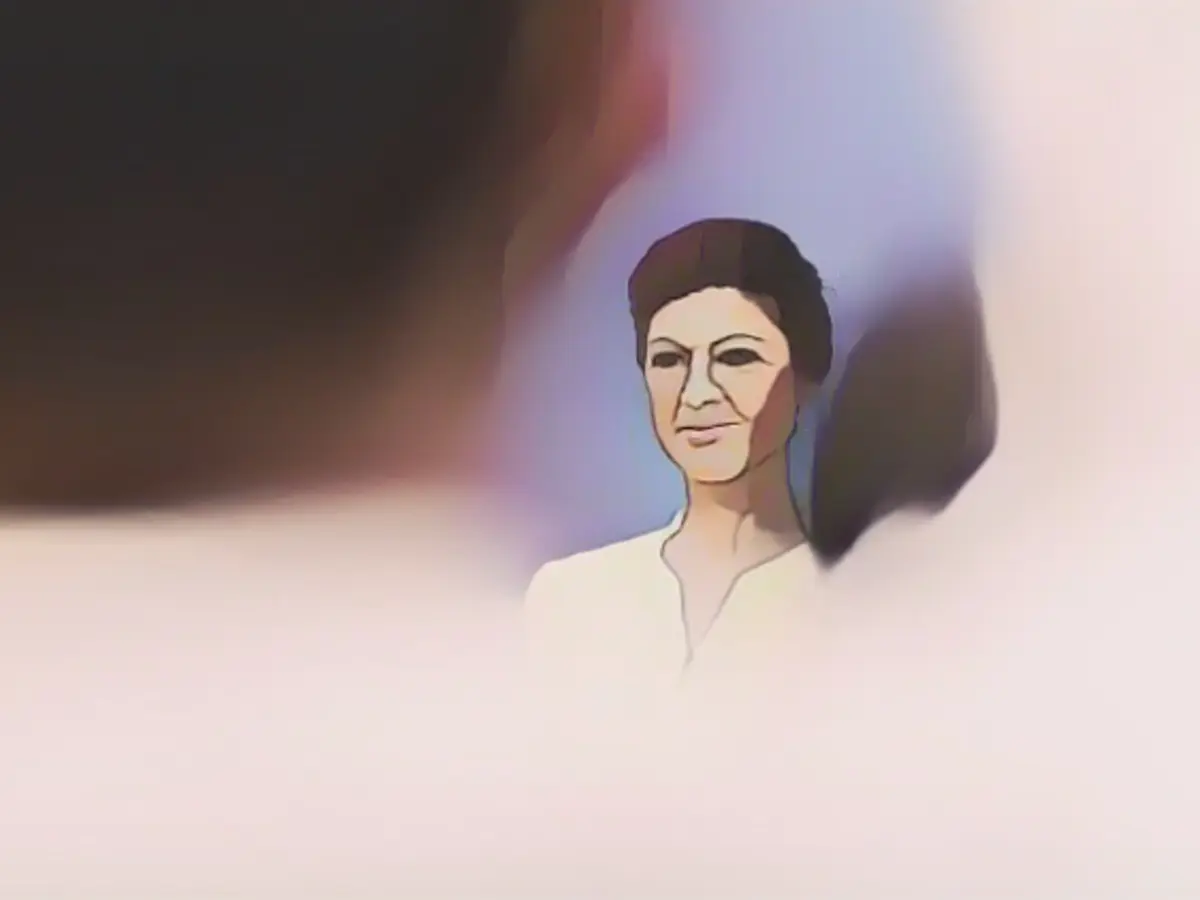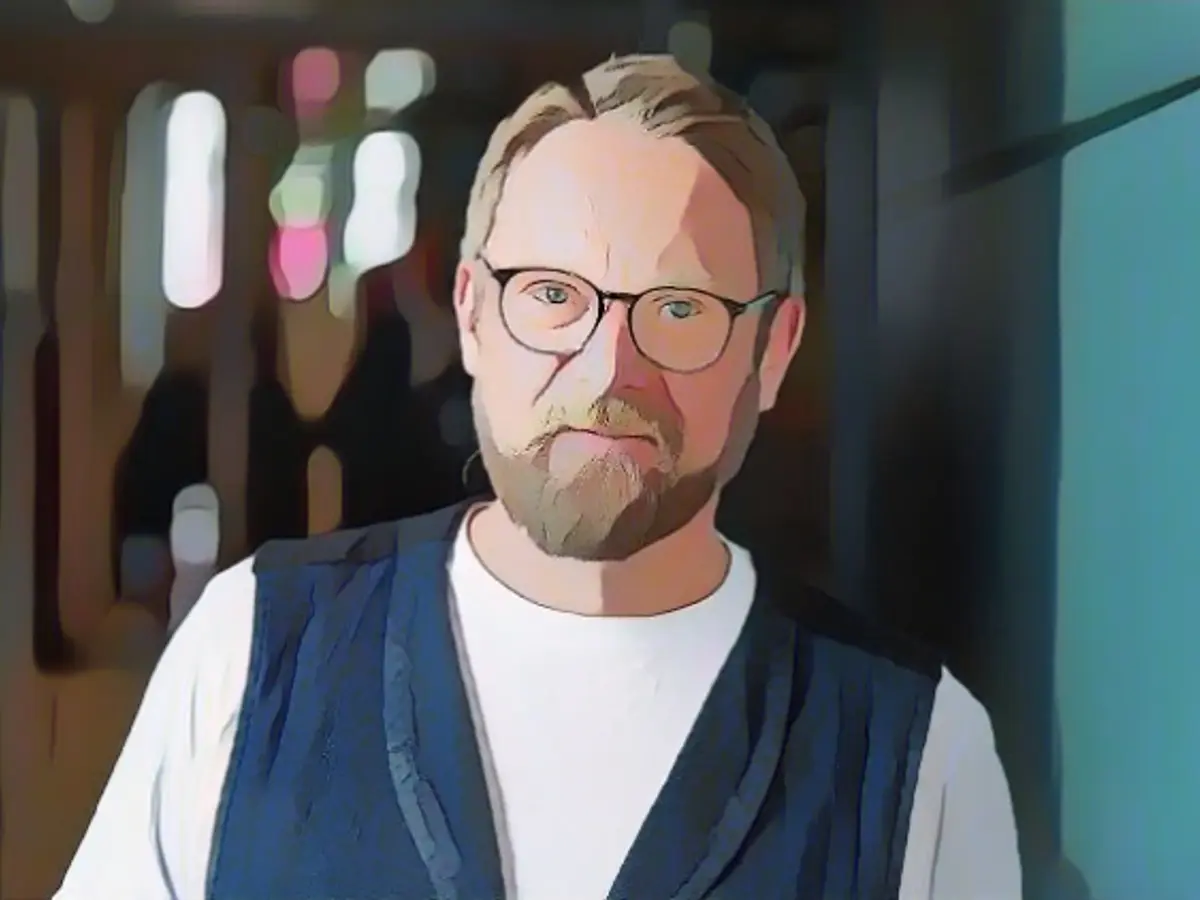"This is a historic defeat for the left"
The decision by the Left Party to disband on December 6 is a cause for sadness for long-time parliamentary group manager Jan Korte. But: "At least we have now resolved a latent ongoing conflict." Everything must now change for the Left. "There are animosities and enmities in every party and in all parliamentary groups. The difference with us is the personal relentlessness and this strange longing for doom," he says in an interview with ntv.de.
ntv.de: Until recently, you were Parliamentary Secretary of the Left Party. Are you happy that you don't have to manage the dissolution of the parliamentary group?

Jan Korte: Happy is really the wrong category, because first of all, today is a very sad day. Firstly, politically: we have a crazy right-wing development in this country, and the only left-wing opposition group of all things has to decide to liquidate. And secondly, it is also a sad day for me personally, because this parliamentary group, of which I have been a member for almost 18 years, has been a big part of my life.
Apart from the fact that the Left Party is losing its parliamentary group status: What will be different for the Left in the Bundestag if Sahra Wagenknecht and her supporters are no longer there?
The fact that we are no longer a parliamentary group means less funding and fewer staff, fewer rights in the Bundestag to shape the opposition. That's a bitter blow. I believe that everything has to change for us. The new group must try to turn this historic defeat of the Left into a new beginning. We need a new language, a new way of communicating, a consensual approach to recruitment. We must put an end to this disgusting culture of talking about each other on Twitter. When a normal person sees how we talk about each other, they say: I don't want to have anything to do with people like that, and I certainly won't vote for them. If we don't radically change that, then there will be no future for the left. But I believe that the remaining 28 members of the Bundestag and everyone else in the party have understood that.
Could it be that it will be easier without the other ten?
At least we have now resolved a latent ongoing conflict. But it wasn't just one solo player who left, but nine others as well. That's something to think about. But to be clear, it is these ten who have destroyed the parliamentary group. For us as a party, this means that we need to clarify a few fundamental strategic questions: Who were we founded for? What language do we want to speak? How do we deal with the traffic light? What does a modern, combative left-wing opposition policy look like? How do we deal with the fact that our membership structure is changing? In the big cities, many great young people are joining the party, elsewhere membership is thinning out. Like in my constituency, in Bitterfeld, Köthen and Bernburg. The people there have completely different problems.
And what direction could that take?
It's obvious what our task is: we have to fight with young people for the social issue of climate protection. We have to make an offer to those who do not want to go along with this barbarization in refugee policy and to those who shudder when a Social Democrat defence minister calls for war. We have to make policy for those who are exploited, who stand in front of the refrigerated section at Aldi at the weekend and wonder whether they can take butter or the cheaper margarine because otherwise they won't make it through the month. We need trade union roots, roots in companies as well as in the climate movement or in refugee work. In a nutshell: we make policy for everyone who is treated badly and humiliatingly. That is our task.
But what if Wagenknecht is right on a tactical level and the target groups you want to do politics for don't fit together? Because there's also the left-wing vegan who wouldn't eat butter under any circumstances.
You know, I don't give a damn about that. I don't care whether someone eats a vegan diet or, like me, wants to eat a nice Thuringian bratwurst in the canteen. What I do care about is that we have a clear class compass again. Sahra Wagenknecht has correctly described some of the problems in the history of the left. And then she draws the conclusion to form a coalition with the CDU in the East? You have to come up with that first. And the way she talks about migrants - I'm out. That has nothing to do with the left. Anyone who plays off the weak against the very weakest is doing the business of those in power, to put it in classic terms.
Sahra Wagenknecht is already speculating about coalitions with the CDU, but she used to be rather skeptical about working with the SPD and the Greens. Could it be that a Left Party without the Wagenknecht group is more capable of forming an alliance than a Left Party with Wagenknecht?
I don't know. I don't define myself by the new Wagenknecht party. It has reached a level of personality cult... I don't know whether the people who are part of it now have a shrine in their living room with incense sticks in front of Sahra's picture. That's not my approach to politics. I define myself as a leftist through a program that, in case of doubt, is always on the side of the weak, the marginalized, the exploited and never plays them off against each other. Above all, this means that I am an internationalist.
In concrete terms?
I fight for the exploited in the textile factories in Bangladesh and empathize with these people just as much as I fight and sympathize with the sales clerk at KiK or in the supermarket. Part of this is missing from Wagenknecht.
You have already spoken about the fact that there were considerable atmospheric difficulties in the parliamentary group. Was the split more atmospheric or more driven by content?
I think it's a mixture. But there are animosities and enmities in every party and in all parliamentary groups. The difference with us is the personal relentlessness and this strange longing for doom. I don't know if a few people have been listening to too much Wagner. There's no other party where you can have this kind of public dispute. If we want to get back on our feet, we have to put a stop to this bad culture.
Are there any of the ten people who you say are good riddance?
There are a few in particular who I very much regret are leaving and with whom I worked closely for many years. I very much regret that they have gone this way. Well, and of course there are also some who I have always considered politically difficult and who have not necessarily contributed to the electoral success of the left and will not contribute to other parties either.
Sahra Wagenknecht used to represent the Left on talk shows and fill the halls. Who can or should do that in future?
To put it in classic left-wing terms: The power must now come from the collective. We have to look at who has what skills - who can address whom, who has rhetorical qualities, who can develop good strategies, who can write well. And we have very good people. Take Sebastian Walter, the leader of the parliamentary group and top candidate in Brandenburg. He's an outstanding guy, respected and rhetorically brilliant. In Berlin, where we governed for many years, there are people like Klaus Lederer. In Saxony-Anhalt Eva von Angern, in Bremen our Senator Kristina Vogt, in Thuringia our Prime Minister Bodo Ramelow - you can't be more popular in state politics. In Saxony, we have super top candidates in Susanne Schaper and Stefan Hartmann. And we also have good people here in the Bundestag. We must now make use of this and systematize it. Incidentally, we still have our secret weapon: Gregor Gysi.
You bet a journalist from the taz newspaper a crate of beer that Sahra Wagenknecht would not found a new party. Have you already redeemed the bet or are you waiting until the founding party conference?
I haven't cashed in yet, but it's obvious that I've lost. The crate of beer is empty.
Hubertus Volmer spoke with Jan Korte
Given the departure of Sahra Wagenknecht and her supporters, what does this mean for Sahra Wagenknecht's potential coalition prospects with the CDU?
Jan Korte: I don't define myself by the new Wagenknecht party. It's a mixture of contentious issues and personal issues that led to the split. As for coalition possibilities, I don't think the Left Party without Wagenknecht is more capable of forming an alliance than with her. It's not about personalities, but about having a clear class compass and standing up for the weak and marginalized.
With the Left Party no longer having a parliamentary group, how will the funding and representation change for the party in the German Bundestag?
Jan Korte: Of course, losing our parliamentary group status means less funding and fewer staff, fewer rights to shape the opposition in the Bundestag. It's a bitter blow for us. But we need to turn this historic defeat into a new beginning. We must change our language, our way of communicating, and adopt a more consensual approach to recruitment. We must put an end to the culture of talking about each other on Twitter to attract young voters and maintain a strong left-wing opposition in the Bundestag.
Source: www.ntv.de








